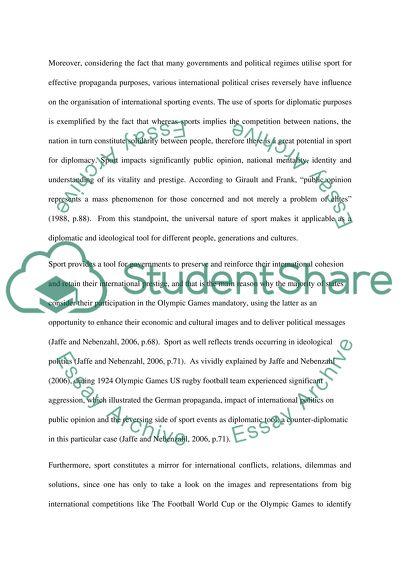Cite this document
(“Sport Diplomacy Essay Example | Topics and Well Written Essays - 3000 words”, n.d.)
Retrieved de https://studentshare.org/sports-and-recreation/1500661-sport-diplomacy
Retrieved de https://studentshare.org/sports-and-recreation/1500661-sport-diplomacy
(Sport Diplomacy Essay Example | Topics and Well Written Essays - 3000 Words)
https://studentshare.org/sports-and-recreation/1500661-sport-diplomacy.
https://studentshare.org/sports-and-recreation/1500661-sport-diplomacy.
“Sport Diplomacy Essay Example | Topics and Well Written Essays - 3000 Words”, n.d. https://studentshare.org/sports-and-recreation/1500661-sport-diplomacy.


